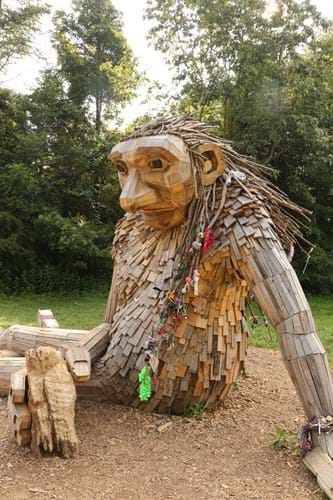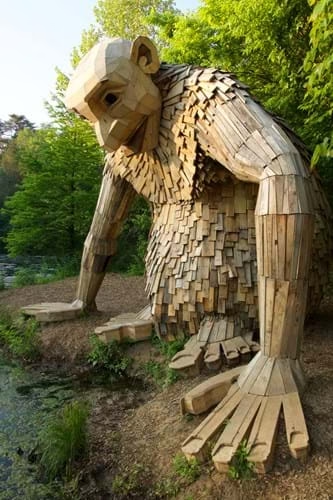Why Do Trees Live So Long? Trees are famously long-lived organisms. And there are stories about countless individuals that have overseen the development of communities over the centuries.
It is easy to take this for granted. And not realize just how old some established trees and local forests really are. But why do trees live so long?
What is it about them that enables them to outlive us by hundreds of years?
Why Do Trees Live So Long?
The short answer here is because they can. There is little in the natural world with the slow metabolism and growth rate of a tree. Nor the healing properties that allow for regeneration long into old age.
As a result, you can find trees that are hundreds of years old. That are still productive parts of an ecosystem. Unless there is a natural disaster. If humans get involved, they could theoretically live forever.
Trees Have Strong Life Cycles Where They Continuously Provide For A New Generation.
Many plants have a single cycle where they die when they have fulfilled a purpose. A flowering plant in a garden, for example, may grow tall.
Create a beautiful flower for pollen for reproduction. Go to seed, and then die once the seeds are dispersed.
Then the next generation can take root and do the same.
It is different for trees as they have the capacity to go through this process year after year. Deciduous trees have the most striking seasonal changes. They grow thick canopies of leaves in spring.
Form blossoms or catkins for reproduction. Develop fruit and nuts, then drop everything for a state of dormancy over winter. The following spring they can start growing again.
And go through the process once more. Without any cause for disruption, this can continue over and over again.
Trees Are Also The Centerpoint For Major Ecosystems.
The great thing about this continuous growth and the ongoing cycle. Is that the tree becomes this massive established structure that other organisms take advantage of.
The insects that pollinate the trees get home and food supply. Birds and mammals can come and eat those insects. And make nests in cavities in the trunk or within the branches.
Why Do Trees Live So Long?
The physiology of trees and these repeated cycles. This means that it is theoretically possible that a tree could live forever.

Most living things have a life expectancy of some kind. Where eventually old age will make it impossible to stay alive. For humans, the global average is 72.81 years.
Although this is higher in wealthier developed societies.
Some insects live for a single day. While slow-growing tortoises and sharks with low metabolisms live for over a hundred years.
Some plants live through one cycle of growth. Flowering, and going to seed while the trees complete multiple cycles.
The combination of the slow growth of trees, and the use of energy resources.
And the ability to heal and regenerate makes trees the most long-lived organisms.
Areas of trauma can heal and limbs can regrow. Thanks to the retention of stem cells in meristems, making them highly resilient.
The oldest is said to be the Great Basin Bristlecone Pine at over 5000 years old.
Trees Do Eventually Die Due To Some Natural Or Unnatural Cause.
Despite these adaptations, all trees will eventually succumb to something during their lives. Some will die at a relatively young age. And others well into their hundreds.
In some cases, the cause will be natural and the death may end up benefiting the landscape. There may be a storm, a fire, or a disease.
Often, the cause will be man-made.
Some trees will be cut down for timber or removed for forest management. While others end up being felled to make way for developments.
Tree Can Outlive Us All.
It is remarkable to think that a sapling we grow in a garden. Could grow tall over generations and remain in place for hundreds of years.
Of course, it is unlikely that it will be left alone all that time.
But, the physiology of the tree gives it the potential to live forever if we let it.
If undisturbed it can become a vital home for nature.
And produce enough offspring for a new forest.

